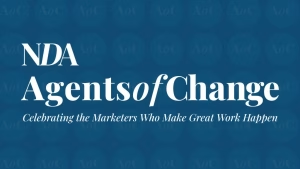As the coronavirus pandemic has quickly become the new normal, NDA wants to celebrate the positives of our current situation.
We asked Sean Kinmont, founder and partner at 23red, where we should be looking for good news.
What, if any, positive long-term impact on the digital industry will coronavirus have?
Coronavirus is all about change and the shift has been in harnessing the agility of digital to adjust to the speed of change.
When it comes to digital usage consumers are now adapting and moving extremely fast, so we need to use digital to be ahead of the consumers and deliver to them what really matters. Importantly though this tactical short-term responsiveness must be balanced by investment in longer term brand building.
What positive impacts on long term consumer behaviour shifts will it have?
We are witnessing human behaviour changes on a mass scale, often driven by necessity, or because with the threat to life people reassessing what really matters to them.
Positive behaviours have been engaged by a wider section of society than was previously the case and hopefully these will prevail with fewer than 1 in 10 saying they want to return to the way things were before lockdown life.
We will often use Michie et al’s COM-B behaviour change model to identify Capability, Opportunity and Motivation in helping brands think about consumer behaviours.
All three will have been influenced by the pandemic. Capability and opportunity have been limited by lockdown, but at the same time has taught people new skills and values. And this has led to more meaningful pro social motivations.
However, as the crisis decreases, so will some of these push factors. As an agency that’s all about behaviour change and purpose it’s an exciting time to be helping organisations to highlight their brand purpose and align themselves meaningfully to motivations and causes that matter in order to develop authentic connections with their consumers.
What positive impacts have you seen on how your business operates?
This is the year 23red celebrates its 20th anniversary and as such the business has lived through numerous political and economic upheavals. This crisis feels different, more bound up in uncertainty and likely to have a significant and lasting impact. It can conclude well or badly, but the overriding feeling is that if we can overcome the paralysis of uncertainty there are real opportunities to grow and thrive.
The positive operational impacts are seen in how having to quickly and remotely organise around the work has resulted in stripping out layers of decision makers and moving even further from a permission-based culture to that of empowered autonomous teams.
What have you been most heartened about in how your staff, partners, customers or clients have reacted to the new normal?
People’s natural resilience and adaptability always surprises me. One day we were snug together in our lovely office and the next scattered across London and the South East and there was hardly an interruption to the delivery and the quality of the work.
The most heartening aspect of this has been how the work we’d done before lockdown embedding our values and describing clear organising principles have supported us through all this change.
What technologies have you been most impressed with during this new situation?
The technologies that have impressed are those that have demonstrated the agility to adjust to the speed of change.
Collaboration tools are the most obvious, but I’ve also been noticing how creative production has kept pace with the challenges of isolation and now we are seeing a new style of digital image manipulation and animation using found source materials.










